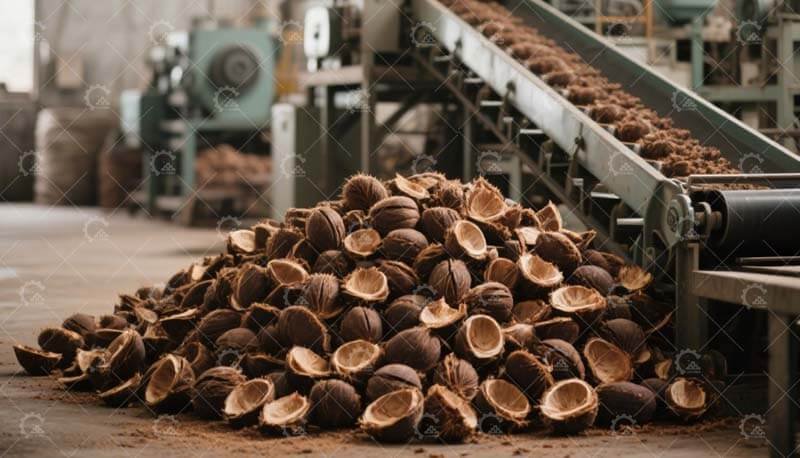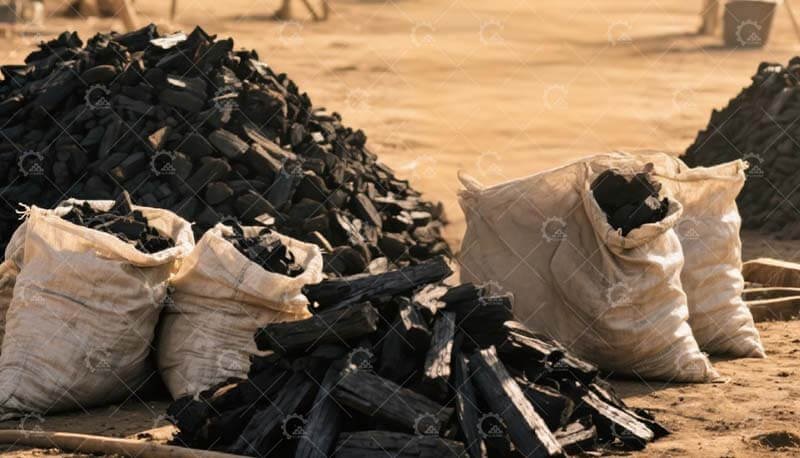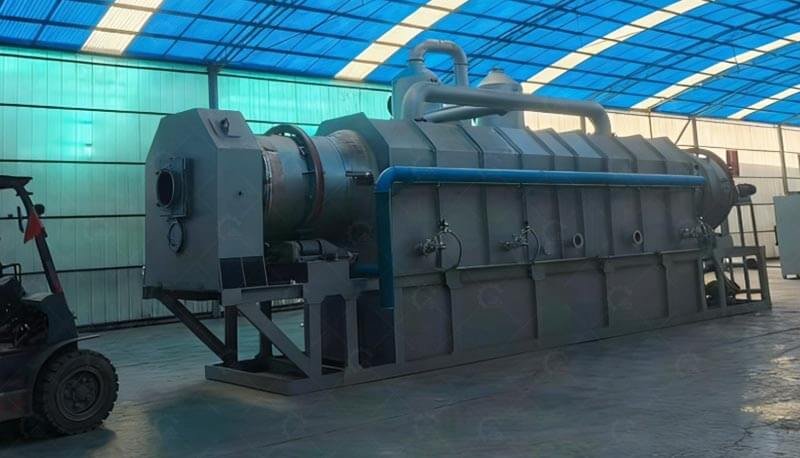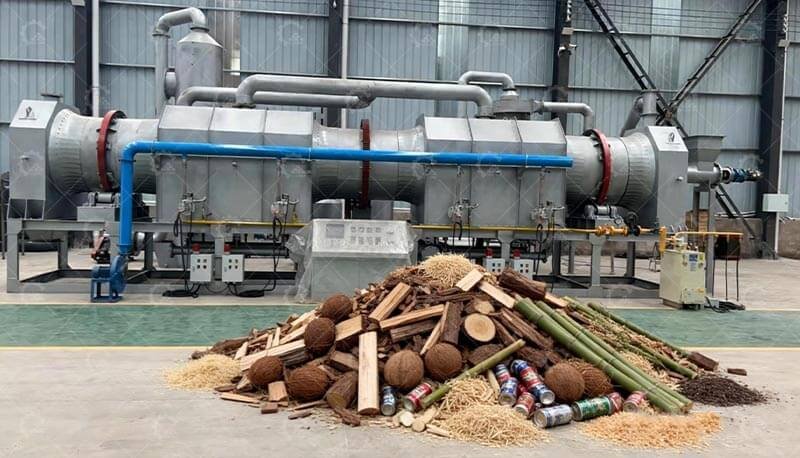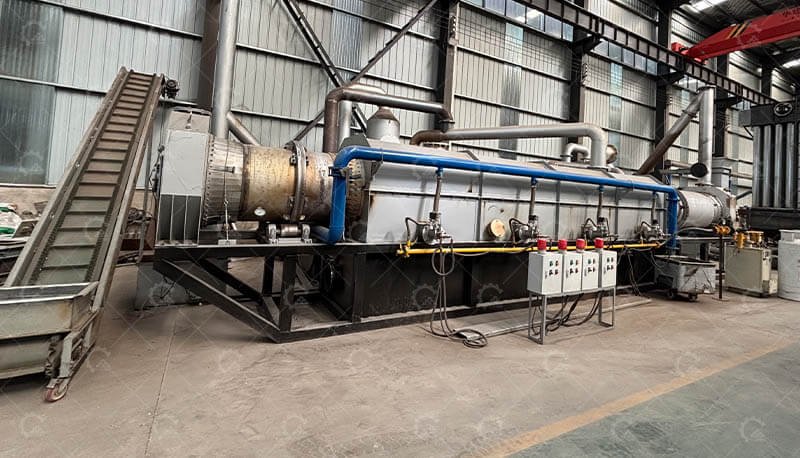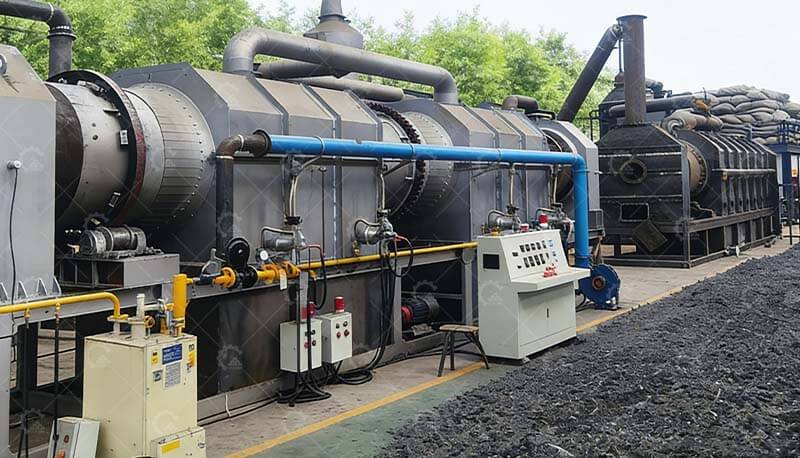Struggling to find reliable information on carbonization furnace price and choosing the right charcoal making machine for your biomass waste conversion project? Investing in this technology is crucial for transforming agricultural residues, wood waste, or even sewage sludge into valuable charcoal, biochar, or activated carbon. Understanding the carbonization furnace price factors and the capabilities of the charcoal making machine is key to maximizing your ROI and ensuring sustainable operations.
Carbonization Furnace Price: What Drives the Cost?
The carbonization furnace price isn’t a single number; it’s a range influenced by several critical factors:
1. Technology & Design
Batch vs. Continuous
Traditional batch furnaces have a lower initial carbonization furnace price but lower efficiency and higher labor costs. Continuous carbonization furnaces command a higher price but offer superior automation, consistent output, higher throughput, and significantly lower operating costs per ton.
Heating Method
Direct heating (simpler, potentially lower furnace cost) vs. Indirect heating (better product quality control, higher purity output, higher initial investment).
Material & Build Quality
Furnaces constructed with high-grade heat-resistant steel (like 310S) withstand higher temperatures and corrosive gases longer, impacting durability and price. Cheaper materials lead to frequent repairs and downtime.
Automation Level
Basic manual control vs. PLC-controlled systems with touchscreens, real-time monitoring, and automated feeding/discharge systems significantly affects the charcoal making machine price.
2. Capacity & Scale
A small-scale biochar production equipment unit for farm use will cost substantially less than an industrial-scale continuous charcoal carbonization furnace designed for 10+ tons per day. Price generally scales with capacity, but larger units often offer better value per ton of output.
3. Emission Control Systems
Meeting environmental regulations is non-negotiable. Basic scrubbers add cost; advanced systems like multi-stage pyrolysis gas purification (condensers, scrubbers, ceramic dust filters, activated carbon adsorption, even gas recycling for heating) significantly increase the overall carbonization furnace price but are essential for legal operation and sustainability goals.
4. After-Sales Support & Warranty
Reputable manufacturers include comprehensive warranties, installation guidance, operator training, and readily available spare parts. This support network adds value and influences the final price.
Understanding the Charcoal Making Machine: Core Functionality
A modern charcoal making machine (pyrolysis furnace) is more than just a heater; it’s a sophisticated system for controlled thermal decomposition (pyrolysis) in an oxygen-limited environment:
1. Pre-Treatment
Raw biomass (e.g., wood chips, coconut shells, rice husk, palm kernel shells) often requires drying (to <20% moisture) and sizing/shredding for optimal furnace performance and charcoal yield. Some systems include integrated dryers/crushers.
2. Feeding System
Automated screw feeders or conveyor belts ensure consistent, controlled input into the main furnace chamber.
3. Pyrolysis Chamber (The Core)
Where magic happens. Biomass is heated to temperatures typically between 400°C and 800°C. In continuous charcoal carbonization furnaces, material moves steadily through different temperature zones (drying, pyrolysis, cooling).
4. Gas Management & Energy Recovery
Volatile gases released during pyrolysis (smoke) are not wasted. Advanced systems:
Purify: Remove tars and pollutants.
Recycle: Use the combustible syngas to fuel the furnace itself, drastically reducing external fuel costs (making the system largely self-sustaining after startup).
Utilize: Excess gas can sometimes be used for other heating needs.
5. Cooling & Discharge
Hot charcoal is rapidly cooled (often using water-cooled screws or sealed chambers) to prevent spontaneous combustion before being discharged safely, usually as granules or briquettes.
6. Emission Control
As mentioned, sophisticated scrubbing and filtering ensure clean exhaust, complying with sustainable charcoal production standards.
Beyond Price: Key Considerations for Your Investment
Feedstock Type & Moisture: Ensure the charcoal production equipment is designed for your specific biomass (size, density, moisture).
Desired End Product: Are you making standard fuel charcoal, high-quality BBQ charcoal, biochar for soil amendment, or feedstock for activated carbon? This dictates temperature profiles and process control needs.
Labor & Operating Costs: Factor in automation levels, fuel efficiency (syngas recycling!), maintenance needs, and required workforce size. A slightly higher initial carbonization furnace price with lower OPEX often wins long-term.
Certification & Compliance: Look for manufacturers whose equipment meets relevant international safety and emission standards (CE, ISO, local environmental norms).
Total Cost of Ownership (TCO): Look beyond the sticker price! Consider:
Installation & Commissioning
Energy Consumption (Fuel/Electricity)
Maintenance & Spare Parts
Labor Costs
Expected Lifespan
Yield Efficiency (% conversion of biomass to charcoal)
Why Partner with the Right Manufacturer?
Choosing an experienced charcoal making machine manufacturer is as crucial as the technology itself. Look for:
Proven Technology: Request case studies and client references.
Customization: Ability to tailor the biochar reactor or charcoal furnace to your specific needs.
Comprehensive Service: Installation, training, maintenance support, readily available spare parts.
Transparency: Clear breakdown of the carbonization furnace price, performance guarantees (yield, energy consumption), and emission levels.
Investing in Efficiency & Sustainability
Understanding the variables behind carbonization furnace price and the advanced functionality of modern charcoal making machines empowers you to make an informed decision. Prioritize efficiency, reliability, environmental compliance, and long-term value over the lowest initial cost. The right biomass pyrolysis equipment transforms waste into profitable, eco-friendly resources, positioning your business at the forefront of the circular economy.
Ready to discuss your project specifics and get a tailored quote for the optimal carbonization solution? Contact us today for a detailed consultation!



